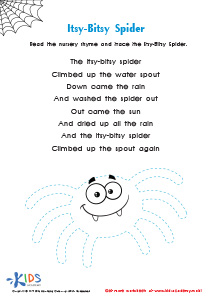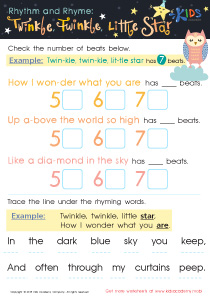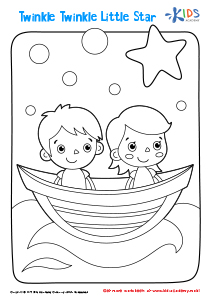Nursery Rhymes Worksheets for Ages 6-9
5 filtered results
-
From - To
Discover our engaging Nursery Rhymes Worksheets for kids aged 6-9, designed to enhance literacy and spark creativity! These worksheets offer a delightful way for young learners to explore classic nursery rhymes while improving their reading, writing, and comprehension skills. Each printable page features fun activities such as word searches, fill-in-the-blanks, and drawing exercises that help develop critical thinking and language abilities. Perfect for classroom use or home learning, our nursery rhymes worksheets effectively blend education and entertainment, making learning fun. Enable your child to connect with beloved rhymes, fostering a joy for reading and storytelling! Explore the collection today!
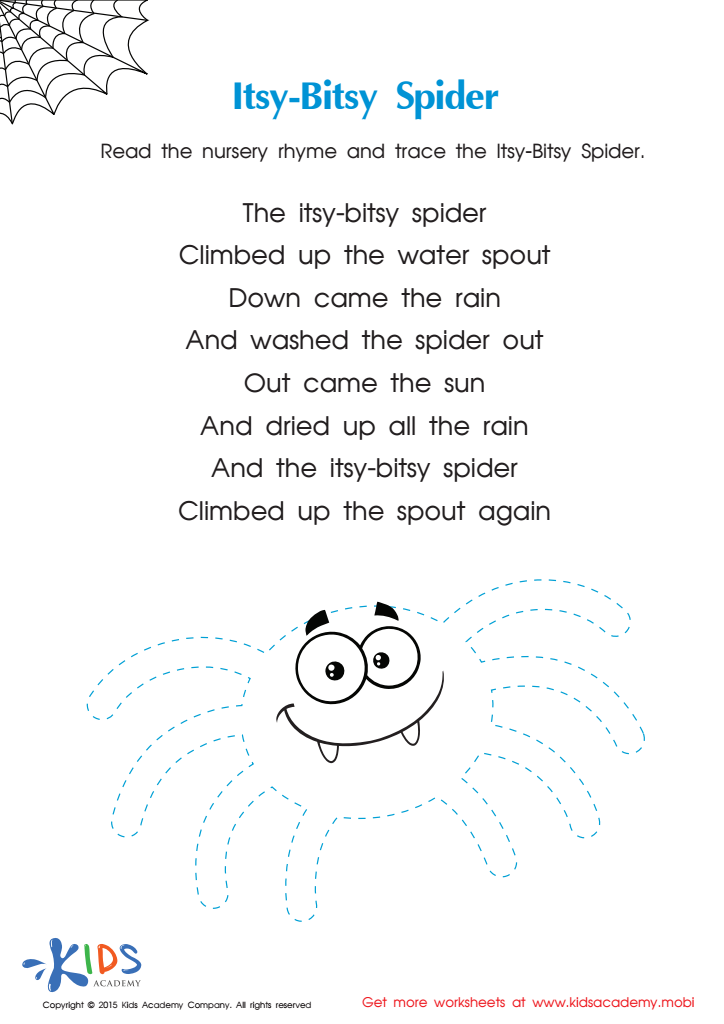

Itsy Bitsy Spider Nursery Rhyme PDF Worksheet
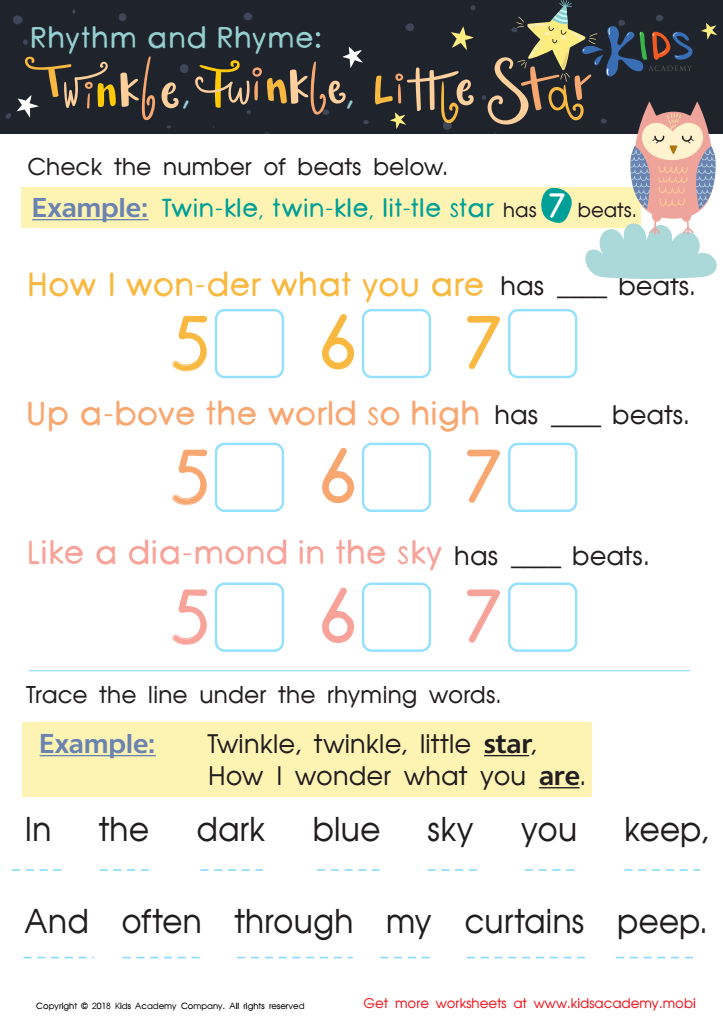

Rhythm and Rhyme: Twinkle, Twinkle, Little Star Worksheet


The Five Little Monkeys Nursery Rhyme Worksheet
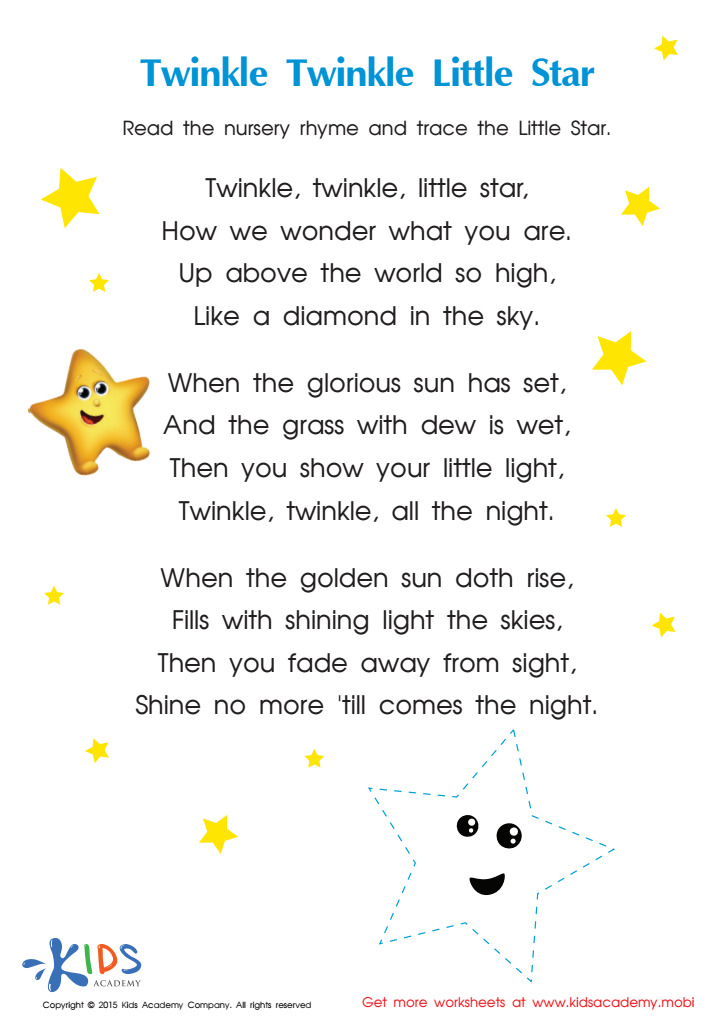

Nursery Rhymes: Twinkle Little Star Worksheet
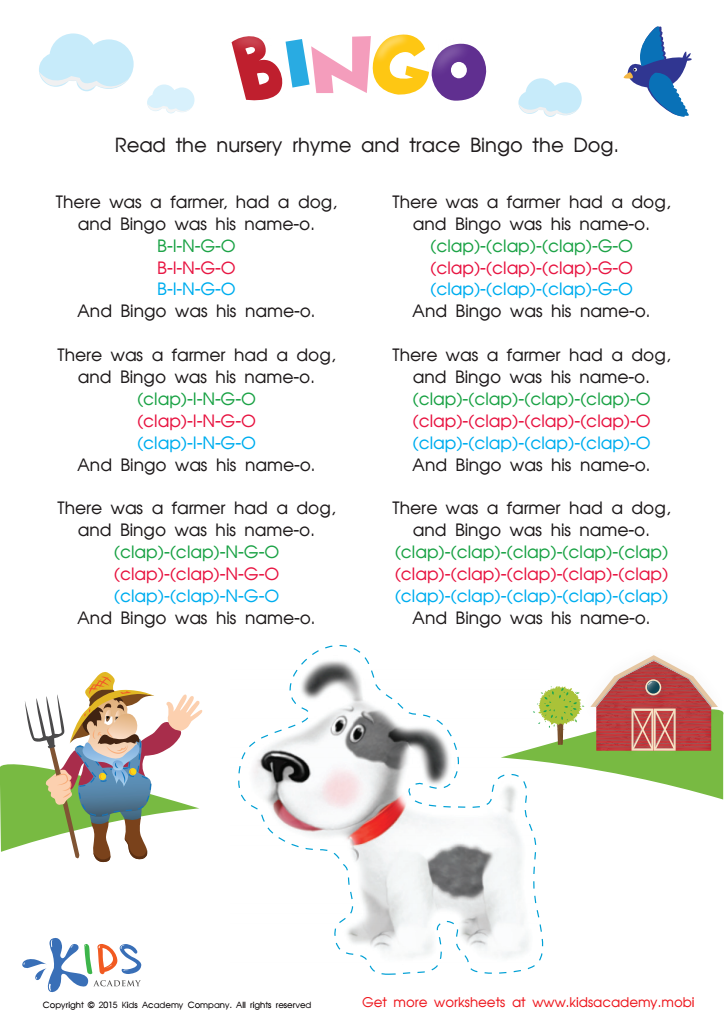

Nursery Rhymes: The Bingo Song Worksheet
Nursery rhymes play a crucial role in the developmental journey of children aged 6 to 9. First and foremost, they promote language development. The rhythmic and repetitive nature of rhymes supports vocabulary acquisition and phonemic awareness, essential for reading skills. Listening to and reciting rhymes helps kids internalize sounds and develop articulation.
Additionally, nursery rhymes foster cognitive development. They often involve storytelling elements that promote imagination and creativity, encouraging children to think critically and make connections between ideas. Many rhymes have engaging rhythms that draw children in and make learning enjoyable.
Socially and emotionally, rhymes can enhance bonding among children and caregivers, creating shared experiences that strengthen relationships. They instill cultural literacy, exposing kids to traditions and folklore that are part of their heritage.
Furthermore, nursery rhymes teach important life lessons and moral values, often incorporating themes of friendship, respect, and problem-solving. In a classroom setting, incorporating these rhymes can facilitate collaboration and build a sense of community.
For teachers and parents, being mindful of the power of nursery rhymes can enrich a child's learning experience and overall development, making them essential tools in early education.
 Assign to My Students
Assign to My Students








